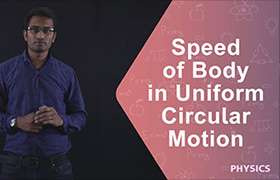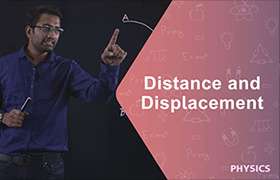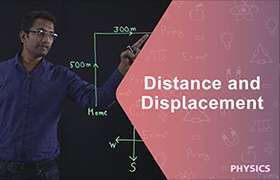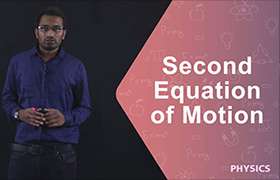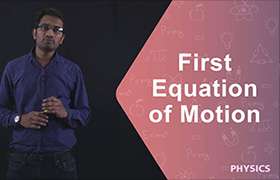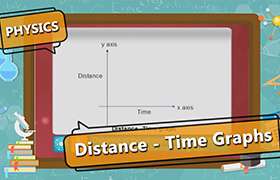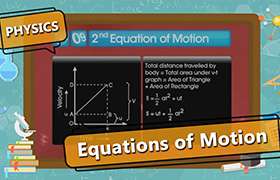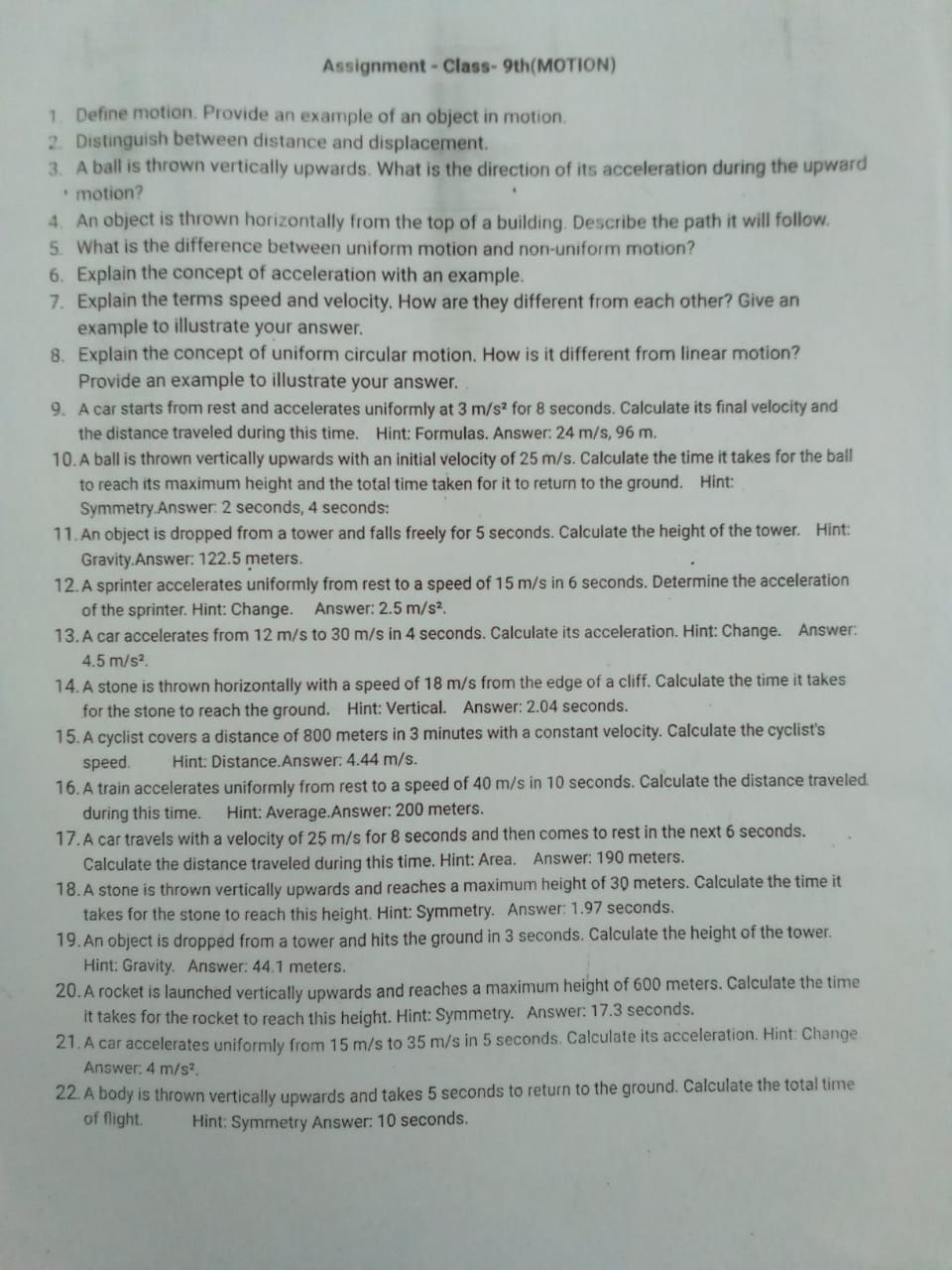CBSE Class 9 Answered
A stone is thrown up with an initial speed v0. There is a resisting acceleration k(v^1/2) due to air, where v is instantaneous velocity and k is some positive constant. Find the time taken to reach the highest point and the maximum height attained by the particle.(neglect acceleration due to gravity)
Asked by Mayank Gupta | 18 Jun, 2011, 02:46: AM
Using first equation of motion
v = u - a t
Where v is the speed at highest point and t is the time to reach that point. As acceleration due to gravity is neglected, then
0 = v0 - k(v^1/2) t
t = v0 / k(v^1/2)
Let H is the maximum height attained by the stone then,
v2 = u2 2aH
0 = (v0)2 2 k(v^1/2) H
H = (v0)2 / 2 k(v^1/2)
Answered by | 21 Jun, 2011, 09:23: AM
Application Videos
Concept Videos
CBSE 9 - Physics
Asked by mailtoparvathyprajith | 06 Feb, 2024, 09:50: PM
CBSE 9 - Physics
Asked by mailtoparvathyprajith | 06 Feb, 2024, 09:10: PM
CBSE 9 - Physics
Asked by sapnamantri05 | 24 Nov, 2023, 04:54: PM
CBSE 9 - Physics
Asked by ashrithpandu84 | 09 Oct, 2023, 08:09: PM
CBSE 9 - Physics
Asked by janhavisoni2099 | 02 Oct, 2023, 05:20: PM
CBSE 9 - Physics
Asked by durgesh21332 | 06 Sep, 2023, 06:17: PM
CBSE 9 - Physics
Asked by sagrawal0081 | 18 Aug, 2023, 05:04: PM
CBSE 9 - Physics
Asked by ketkiparasgandhi | 05 Jul, 2023, 08:02: PM
CBSE 9 - Physics
Asked by leena3732 | 15 Jun, 2023, 09:42: AM

